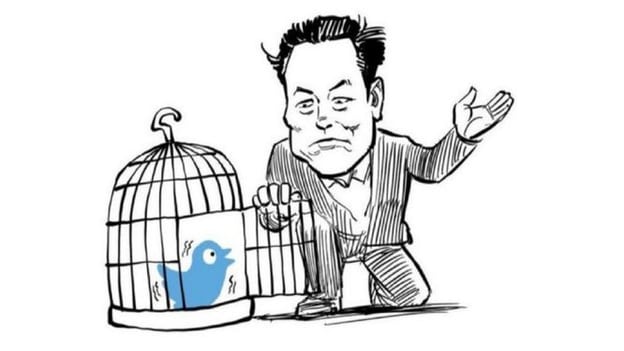The 'great exodus' stings Musk: Advertisers desert Twitter

At least four top Twitter executives – including the chief customer officer, the head of people and diversity, and the head of product – have quit the company in recent days.
Twitter is in big turmoil. It’s apparent and getting ugly day by day. Elon Musk, the new owner of the biggest micro-blogging site has just promised to make Twitter better. The Tesla CEO said he is buying Twitter to help humanity.
The social media firm is now facing an exodus of executives and advertisers as Musk and his advisers take control of the social media company.
At least four top Twitter executives – including the chief customer officer, the head of people and diversity, and the head of product – have quit the company in recent days, media reports said.
The executives, who left Twitter in recent days include, Sarah Personette, the chief customer officer, who managed the company’s relationships with advertisers; Dalana Brand, the head of people and diversity; Jay Sullivan, the head of product; and Nick Caldwell, the executive responsible for core technologies like infrastructure.
At the same time, advertisers – who provide about 90 per cent of Twitter’s revenue – are increasingly grappling with Musk’s ownership of the platform.
Almost exactly three years before Elon Musk finalised his purchase of Twitter this week, he tweeted his thoughts on the platform’s primary financial engine: “I hate advertising.”
On Thursday, Musk extended a truce of sorts to Twitter’s advertisers, saying in a tweet that he aims to make Twitter “the most respected advertising platform in the world.”
He explained that he bought the company “because it is important to the future of civilization to have a common digital town square” and because he feared that social media was in danger of splintering into echo chambers “that generate more hate and divide our society.”
He sought to ease Madison Avenue’s fears about brand safety — that their ads could appear next to distasteful content and be soiled by association — by stressing that “Twitter obviously cannot become a free-for-all hellscape, where anything can be said with no consequences!”
Without making any promises about content moderation, which many advertising trade groups have encouraged in recent years, Musk promised a platform that followed government regulations and was “warm and welcoming to all.”
The billionaire has baffled some advertisers because he has said he would loosen Twitter’s content rules, which could lead to a surge in misinformation and other toxic content.
IPG, one of the world’s largest advertising companies, issued a recommendation on Monday for clients to temporarily pause their spending on Twitter because of moderation concerns.
Last week, General Motors said that it was temporarily suspending its advertising on Twitter. GM is a competitor of Musk’s electric vehicle company, Tesla. IPG, a holding company with several agencies handling advertising spending, has clients such as American Express, Coca-Cola, Johnson & Johnson, Mattel, and Spotify.
The trouble started brewing when more than 40 civil rights groups also sent an open letter to 20 of Twitter’s top advertisers on Tuesday, urging them to suspend their advertising on Twitter if Musk throws out the platform’s content moderation safeguards.














